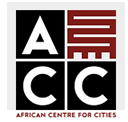Media
Television
Jonathan Crush of the Balsillie School for International Affairs, who heads up the Hungry Cities Partnership, and Jane Battersby of UCT’s African Centre for Cities interviewed at the launch of the Hungry Cities Partnership in Ottawa, Canada:
Bruce Frayne talks about the Hungry Cities Partnership on CNBC during the 2016 Cape Town conference on Informality and the Urban Food System: Policy, practice and inclusive growth through a food lens: http://www.cnbcafrica.com/video/?bctid=4779628026001
Gareth Haysom talks to Jeremy Maggs on eNCA during the 2016 Cape Town conference: https://www.youtube.com/watch?v=91lXK9NTiEg&feature=youtu.be
Jane Battersby talks about food systems in cities on eNCA, June 2016 https://www.youtube.com/watch?v=JCN9nX-FKdU
Jonathan Crush interviewed by Iman Rappetti on eNCA during the Hungry Cities conference in Cape Town, 2015: http://www.enca.com/media/video/debunking-myths-around-migrants-stealing’-jobs
Jonathan Crush talks about xenophobia with Andrew Barnes on eNCA during the 2014 Urban Informality and Migrant Entrepreneurship in Southern African Cities conference in Cape Town: http://www.youtube.com/watch?v=8Cs-m7ZcO8o&feature=youtu.be
Jonathan Crush interviewed on CNBC Africa during the Cape Town AFSUN conference on migration, urbanization and food security, November 2012.
Radio
Gareth Haysom talks about urban agriculture on Power FM, April 2016
Arundhatie Kundal talks to Shado Twala on SAFM about the 2016 Cape Town conference: http://iono.fm/e/258328?autoplay=1
Jane Battersby talks about urban agriculture and food security on SAFM morning talk, April 2016
Gareth Haysom on food insecurity and South Africa’s food system. SAFM. October 2015 https://afsun.org/wp-content/uploads/2015/06/Copy-of-Food-security-Gareth-Haysin.mp3
Godfrey Tawodzera and Caroline Skinner on SAFM’s Talkshop during the February 2015 Cape Town Growing Informal Cities conference: the_talkshop_9_feb_migrant_entrepreneurs_inclusive_growth_medium-2.mp3:
Radio drama series
Feeding Hungry Cities: Southern Africa Speaks on Food Security
1. The Invisible Crisis: Urban Food Security in Southern Africa
Our AFSUN team discusses why hunger in cities is invisible to policy makers.
In the 21st Century, the question of where the next meal is going to come from is a reality for many. The problem of food insecurity is often mistakenly seen as only a rural problem, yet rapid urbanization is contributing to more and more food pressures on cities. The rising costs of food and other essentials, such as electricity and water, means that four out of every five households are moderately or severely food insecure, according to AFSUN’s research. Strategies must be implemented to alleviate this problem.
2. Making Ends Meet: In Pursuit of Food Security
Over half of all people in the world now live in urban areas. In these growing cities, shelves and bins in supermarkets groan with fresh and processed foodstuffs, while on their doorstep poor households are unable to access enough staples to feed themselves more than once a day. Food may be more plentiful and more diverse in the city than rural locations, but it is far from being equally accessible. In this edition correspondents in Lesotho, South Africa, Zimbabwe and Malawi speak to families about their struggles and strategies for food security.
3. Where Does Food Come From?
For millions of people living in Southern Africa’s cities, putting food on the table is part of a complex web of sellers, distributors and vendors. In Southern Africa, big agri-business and international supermarkets operate alongside informal and street side traders. Understanding how cities are fed – where this food comes from, how it gets to the consumer, and who is buying where – is vital to planning for the increasing food demands of cities. This edition sets out to find out where urban consumers get their food.
4. Supermarkets
All across Southern Africa, supermarkets are popping up in new neighbourhoods at an unprecedented rate. On the one hand, the spread of supermarkets could offer consumers more choices, while also translating larger purchasing power into cheaper prices. On the other hand, the growth of big business can also be the ruin of small and medium size farms and smallholder producers. These shelves bursting with stock – just where does it all come from? This episode of looks at the business of supermarkets in the region.
5. Food Across Borders
Southern Africa sees a large amount of food cross its borders in formal and informal trade. Cross-border trade is big business; according to research over 40% of people crossing the border do so for trade purposes. At the same time, migrants also find themselves in the position of sending food or cash for food home. This episode looks at food security and the migration of informal traders across borders.
6. Nutrition: the Double Burden
Despite decades of interventions, Southern Africa still faces widespread malnutrition, especially among children. However, while many do not have enough to eat, rapid urbanisation and changing diets are now producing a second ‘silent emergency’ – obesity. For people living with HIV, it is very important to eat nutritious food but lost income can also affect purchasing power. This edition looks at the double burden of under-nutrition and over-nutrition, and the threat to the region’s health.
7. Stretched Households: Informal Food Transfers, Remittances and Food Security
Many families in Southern Africa rely on each other for cash and food when times are tough. Whether the extended family is across a border, or living in another part of the country, few urban dwellers would dream of returning home for the holidays or a weekend visit empty handed. Many people in the city also enjoy the fruits of their rural family’s agricultural labour, at least every once in a while. This episode looks at how households are stretched across the urban – rural divide, and the importance of remittances and informal food transfers to food security in the region.
8: HIV and Food Security
Southern Africa is greatly affected by HIV and AIDS, with the highest prevalence rates found in urban areas. Despite the large numbers of urban people struggling with both poverty and HIV, very little is understood about the link between HIV and food security in cities. It is of utmost importance that people living with HIV/AIDS eat healthy and nutritious food, while families struggling with caring for an AIDS-affected family member may have reduced income. This episode of looks at the interconnection between HIV/AIDS and urban food security.
9. Food Waste and Redistribution
In most African cities, there is enough food available to feed everyone. In fact, while some go hungry – in other corners food is wasted. In wealthier homes, leftovers from yesterday’s meals stay in the fridge until they are no longer edible. More worryingly, large superstores regularly dispose of food that’s gone past its sell by date. So with excess on one side, why are so many going hungry? And how can we make the best use of all this food? This episode explores how food is being redistributed, to help feed hungry stomachs, and how feeding schemes help many get by.
10. Urban Agriculture
In the 1980s and 90s, the focus on urban agriculture saw a rise in popularity of such phrases as “cities feeding people”, “hunger-proof cities” and “urban harvest”. However, AFSUN’s research shows that in reality, a very small proportion of people living in cities grow food for themselves. Even fewer grow food for sale. This episode asks the question – what role is urban agriculture currently playing in the food security of Southern Africa’s rapidly urbanising towns and cities?
Trading Places
The series communicates AFSUN’s research, while giving a space for real stories, experiences, and solutions to be shared. The 15-minute drama is available in English, Portuguese, Zulu, Xhosa, Nyanja, and Shona. Produced by CMFD Productions for AFSUN, the drama tackles issues of food insecurity and the challenges faced by urban informal traders, who in fact are key role players in Africa’s food economy. Faced with a move that seems to be out of their hands, traders at a busy city market are confronted with the troubling prospect of no food on their tables. Elizabeth is a street food trader with a flair for cooking, a big heart, and a source of strength from an unseen source. An unlikely friendship emerges with Grace, a young, snobbish university student, and the two discover they have more in common than they would have thought.
The aim of the drama is to:
- Raise awareness about urban food security as an issue – both policy makers and general public.
- Demonstrate the complexity of urban food insecurity and portray the human aspect of insecurity.
- Encourage dialogue and discussion on urban food security issues and solutions.
- Encourage media to seek further information about urban food security.
Trading Places in English
Trading Places in Xhosa
Trading Places in Shona
Trading Places in Zulu
Trading Places in Portuguese
Trading Places in Nyanga
Theme trailer




Follow Us